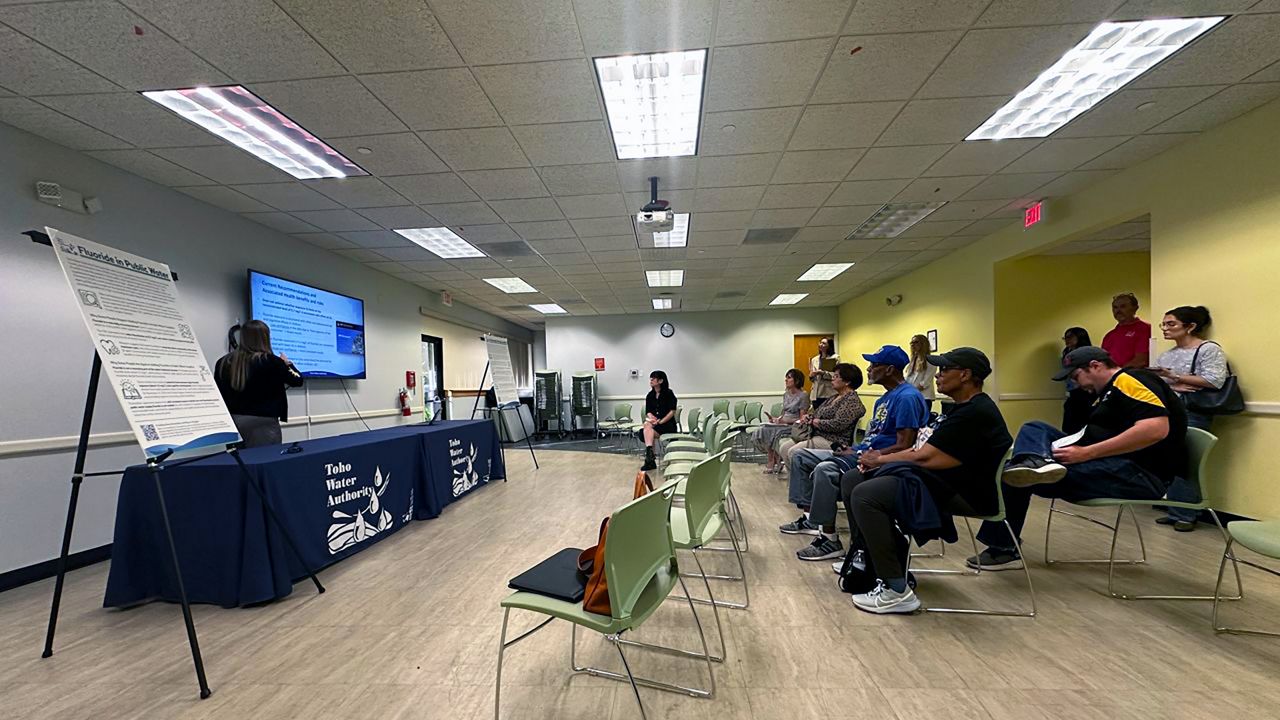ORLANDO, FLA. — An Orlando doctor and Michigan consultant are accused by federal authorities in a nationwide scheme to persuade women to take on debt and travel long distances to remove controversial transvaginal mesh implants in hopes of increasing lawsuit settlements.
- Dr. Christopher Walker of Orlando accused in transvaginal mesh scheme
- Feds say alleged scheme misled women about risks, insurance coverage
- Alleged victims paid "exorbitant" interest rates to funding companies
Dr. Christopher Walker, 45, of Orlando is accused in a scheme to pay for referrals of woman implanted with transvaginal mesh.
He and others allegedly paid kickbacks and bribes to surgical-funding facilitator Wesley Blake Barber, 49, of Detroit, Michigan, in exchange for referrals of women for mesh removal, according to a six-count indictment unsealed Friday.
Walker, a licensed physician and urogynecologist, performed mesh-removal surgeries at a business he owns called MedSurg Consultants at 801 N Orange Ave., Suite 710, authorities said. That’s the same address of another Walker business: UroGyn Specialists of Florida. That business has locations in Lake Mary and Kissimmee.
Barber owns Surgical Assistance Inc. and Medical Funding Consultants.
“The Barber Entities facilitated the coordination of removal surgeries and purchased and resold medical debts for profit,” the indictment alleges.
An attempt to reach Walker’s attorney Monday was not successful. Barber’s attorney could not be determined.
Walker and Barber each face up to 90 years in federal prison if convicted of all the charges, according to the U.S. Attorney’s Office for the Eastern District of New York.
The FBI investigated. The case is assigned to U.S. District Judge Raymond J. Dearie of the Eastern District of New York.
Transvaginal mesh is used to reattach displaced pelvic organs and to treat stress urinary incontinence. But many patients have complained about mesh complications, saying they’ve suffered pain, infections, and other problems.
Large federal legal actions called multidistrict litigations have been filed over the years on behalf of mesh patients against product manufacturers.
In June 2013, a settlement was reached in a case consolidated in the Southern District of West Virginia calling for larger amounts for women who had mesh removed than for women whose mesh remained implanted.
“Other manufacturers entered into similar settlement agreements that were also publicly announced,” the indictment said.
That prompted Walker, Barber, and other unidentified participants to develop a “fraudulent scheme in order to profit” on the June 2013 settlement and other transvaginal mesh lawsuits, prosecutors argue.
The alleged scheme ran through March 2016.
Three unidentified women from New York agreed to have their mesh removed after the defendants “falsely and fraudulently” described the risks of leaving mesh inside their bodies and misled them about whether their health insurance would cover the surgeries, federal prosecutors said.
Two unidentified funding companies — one in Brooklyn and the other in Boca Raton — financed the removal surgeries through contingent loans or by purchasing medical debts.
Some of the women agreed to repay costs for the removal surgery plus interest, “which accrued at exorbitant rates, if the women ultimately received a settlement or favorable judgment against the mesh manufacturer,” the indictment alleges. Some women had to pay even if they didn’t get settlements, authorities said. The women didn't know about the alleged kickbacks, the complaint alleges.
Barber and Walker are each charged with:
- One count of conspiracy to commit wire fraud
- Three counts of wire fraud
- One count of conspiracy to violate the Travel Act
- One count of violating the Travel Act
The Travel Act, enacted in 1961, was originally designed to block profits of organized crime from crossing state lines, according to the Law Journal Newsletters. The federal government is increasingly using this law in health care bribery and kickback schemes, the publication says.








